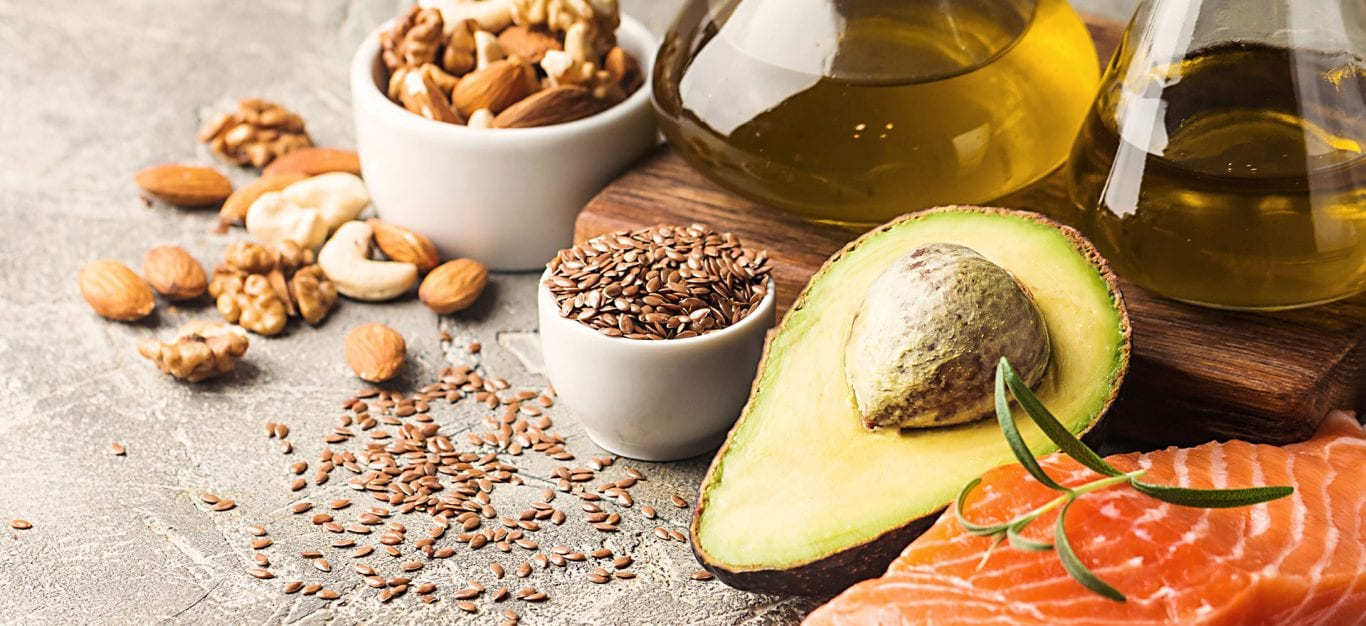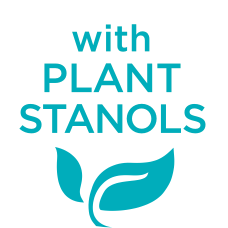Portfolio diet – Lower cholesterol naturally

What is the portfolio diet?
The portfolio diet is a plant-based diet aimed specifically at lowering cholesterol. There’s good evidence from research to suggest that it can benefit people with high blood cholesterol [1]. For example, a recent review of studies found this type of diet significantly reduced cholesterol by 17%, when compared to a traditional cholesterol-lowering plan [2].
The plan is based on eating a ‘portfolio’ or group of foods that have all been found to help lower blood cholesterol. These foods include plant stanols, nuts and soy protein, together with foods that provide a specific type of fibre, often referred to as soluble fibre, found in good amounts in oats, barley, pulses, fruit and veg. All of these foods have been found to lower cholesterol in scientific studies. When eaten together, as part of a healthy diet, the cholesterol-lowering effect is enhanced further.
The diet is a vegan diet that’s low in saturated fat and salt, high in fibre and packed with fruit and veg. It also includes specific amounts of soya, nuts, plant stanols and soluble-fibre rich foods.
Heart UK’s The Ultimate Cholesterol Lowering Plan
Heart UK has created its own modified version of the portfolio diet called the Ultimate Cholesterol Lowering Plan© [3].
This plan from Heart UK recommends a healthy diet that reduces saturated fat and includes plenty of fruit, veg and fibre-filled starchy foods. Unlike the portfolio diet, it’s not a vegan diet – meat, poultry, dairy and eggs are all still allowed, although it does recommend less meat and more plant protein. It then gradually adds in the four specific foods – or groups of foods – that help to lower cholesterol.
1. Plant stanols and sterols
Products such as Benecol contain plant stanols, which is shown to lower ‘bad’ cholesterol by partially blocking cholesterol from being absorbed into the blood stream from the digestive system [14 – 21].
How much: The plan recommends 1.5-3g plant stanols or sterols a day. Products containing them should be eaten with meals. Take a look at the plant stanol content of different Benecol products to help you get the recommended amount. Learn more about how Benecol works.
2. Nuts
Nuts are low in saturates and high in monounsaturates – important for helping to lower cholesterol. Plus, they contain fibre and a range of vitamins and minerals.
How much: The plan recommends 30g – equal to about one handful – each day. Choose unsalted nuts with their skins on. Snack on them, or add to cereal, porridge, salads, stir fries and curries. Try almonds, Brazils, pistachios, walnuts, cashews, pecans, hazelnuts, peanuts and nut butters without any added sugar or salt.
3. Oats, barley and other foods rich in soluble fibre
Oats, barley and other foods rich in soluble fibre – oats and barley are especially rich in beta-glucans, a type of fibre that that forms a gel in the digestive system and stops cholesterol being absorbed into the blood. Pulses such as beans, lentils and chickpeas are also a good choice for boosting soluble fibre.
How much: The plan recommends 3g beta-glucans a day – the amount provided in a bowl of porridge, 75g cooked barley and 3 oatcakes.
4. Soya
Made from soya beans, soya products include tofu, soya mince, edamame beans, and soya alternatives to dairy products such as milk and yogurt. These foods all tend to be low in saturated fat and contain a wide range of vitamins and minerals.
How much: The plan recommends starting with one to two servings a day, aiming to build up to three daily servings. A serving equals a large glass of soya milk, an individual pot of soya yogurt or 100g of tofu or soya mince.
